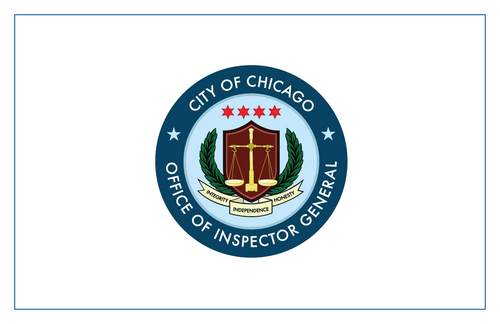
CHICAGO—(ENEWSPF)—September 21, 2017. The City of Chicago Office of Inspector General (OIG) has completed an audit of the City’s compliance with the Language Access Ordinance, Municipal Code of Chicago Chapter 2-40 (Ordinance). The Ordinance requires City departments to create and implement plans to provide persons with limited English proficiency meaningful access to vital documents and services. As such, the purpose of the Ordinance dovetails with the City’s other immigrant support programs, including its Welcoming City Ordinance and its stated commitment to serving as a “sanctuary city.” We conducted this audit with the cooperation of the Mayor’s Office of New Americans (ONA), which assists departments in complying with the Ordinance.
The Mayor and City Council have committed to making Chicago a welcoming city for immigrant communities. However, OIG’s audit concluded that the City of Chicago is not in compliance with its own Language Access Ordinance, which is intended to provide meaningful access to services for residents who have limited English proficiency.
OIG found that ONA focused its efforts on only seven City departments that it deemed most pertinent, and the Ordinance only requires compliance “to the degree practicable” from departments that provide emergency services, like the Chicago Police Department. None of the seven City departments chosen are in full compliance with the Ordinance. Specifically, none of the selected seven departments used the required four-factor analysis in developing their Language Access Plans or solicited public comments as the Ordinance requires.
OIG recommends that the Mayor’s Office undertake the following steps to provide access to all residents:
- Clarify which requirements in the Ordinance apply to each of the various City departments.
- Endow ONA or another entity with the power and duty to enforce compliance with the language access requirements in the manner that other cities have done.
- Inform all departments of their responsibilities under the Ordinance, as well as the resources available to them, such as document translation and interpretation services available through the City’s contract with Language Line, Inc.
- Share ONA’s templates and other guidance documents with all City departments.
- Ensure that departments conduct the required four-factor analysis in developing their language access plans.
- Evaluate departmental performance and identify opportunities for improved language access.
- Promote accountability and transparency by publicly reporting on departments’ language access services in the manner that other cities have done.
“At a time of heightened consciousness of and attention to immigration issues, it is especially important that program administration is consonant with and fully inhabits the values embodied in policies and initiatives like the Language Access Ordinance that are critical to the support and successful integration of our immigrant communities,” said Inspector General Joe Ferguson.
The full report can be found online at OIG’s website: http://bit.ly/LANGUAGEACCESS
Follow @ChicagoOIG on Twitter for the latest information on how OIG continues to fight waste, fraud, abuse, and inefficiency in Chicago government.
Source: Chicago OIG








